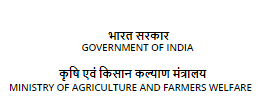Rice variety: Pusa Basmati 1728
Background:
Pusa Basmati 6 occupied an area of ~ 2.84 % of the total area under Basmati rice
cultivation of the country during Kharif 2018, especially Sirsa and Fatehabad districts of
Haryana. However, this variety is highly susceptible to bacterial blight disease which
causes significant yield and quality losses. Further, management of this disease through
chemical pesticides is not effective.
Pusa Basmati 1728 is an improved Basmati rice variety in the genetic background of Pusa
Basmati 6, which is a popular Basmati rice variety developed at ICAR-Indian Agricultural
Research Institute, New Delhi. It is characterized by extra-long slender grains (7.46 mm)
with very occasional grain chalkiness, very good kernel length after cooking (14.62 mm),
intermediate ASV (7.0), intermediate amylose content (22.84 %) and very strong aroma.
In the panel tests, it has been ranked as an excellent culture and was in the top-rated
cultures among the Basmati varieties and other cultures based on two consecutive years
of testing in the national Basmati trials during Kharif 2014 and 2015. Therefore, Pusa
Basmati 1728 offers an effective replacement for Pusa Basmati 6 in these Basmati growing
regions of India.
Technology Details:
Pusa Basmati 1728 is a bacterial blight resistant version of Pusa Basmati 6 which carries the
bacterial blight resistance genes xa13 and Xa21. The agro-morphological, grain and cooking
quality characters of Pusa Basmati 1728, are at par with the existing genotype Pusa Basmati 6.
Replacement of Pusa Basmati 6 with the Pusa Basmati 1728 would significantly reduce the
chemical-pesticides used in managing bacterial blight disease thereby producing environment
friendly and consumer safe Basmati rice.


